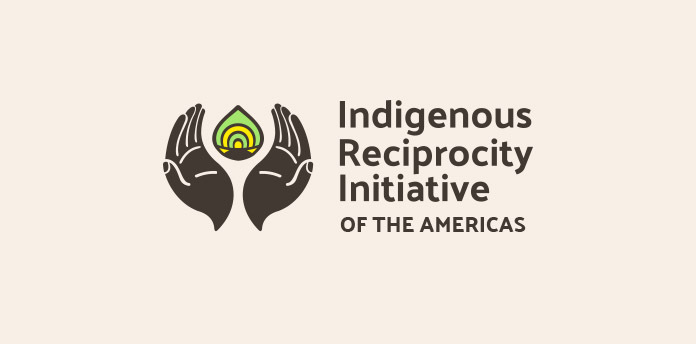
The Indigenous Reciprocity Initiative gives back to Indigenous people through nurturing ecological wellbeing, including land rights activism, bolstering food security, and more.
The issue of Indigenous intellectual property needs to be addressed on a governmental and institutional level, but these long-term goals take many years to come to fruition and often fail to benefit the people they’re intended to reach. This initiative is a way for direct support, right now.
SAN FRANCISCO (PRWEB)
August 10, 2021
The psychedelic community has an urgent opportunity to support Indigenous groups and the traditional ecological knowledge they practice. According to Bia Labate, Ph.D., Chacruna’s Executive Director, “There is a continuity between traditional ceremonial use of sacred plants, the underground use of plant medicines, and the above-ground psychedelic-assisted therapies. It’s time to stop dissociating our practices from the people and the lands from where they originate.”
Many who care about the environment and its interdependency with Indigenous lives have a genuine desire to help, but money given to large NGOs often fails to reach the people on the ground due to the large infrastructural costs needed to run these organizations. Yet, small grassroots groups doing the most impactful work often labor to connect with people wanting to offer direct support through donations. For this reason, the Chacruna Institute for Psychedelic Plant Medicines has created the Indigenous Reciprocity Initiative of the Americas (IRI).
IRI strives to foster a relationship of reciprocity between the rapidly growing industry generated by the mainstreaming of psychedelics in the Global North, often far removed from the needs and struggles of Indigenous peoples. Going beyond symbolic acts, retreat centers catering to Western visitors, or income streams from the tourism economy, the IRI Program acts as a mechanism for businesses, foundations, and private donors to address the disparities stemming from the globalization of psychedelic plant medicines.
“The psychedelic movement has been extracting Indigenous knowledge and experiences – whether intentionally or not, whether directly or not – from its inception to the present. This is an opportunity to return a little something to on-the-ground grassroots groups who uphold and maintain the formal, informal and secondary economies that contribute toward the richness from which such extractions take place, but do not benefit the broader local environments,” says Dr. Daniela Peluso, cultural anthropologist, and Chacruna Institute board member.
The money donated is distributed evenly among the 20 organizations showcased in the IRI webpage, discounting an administrative fee of 7.5% by the Chacruna Institute. A report on the money raised will be issued at the end of each funding year. The IRI Program is a unified pathway to support all the grassroots organizations involved—however, in order to keep the channel open and allow for unmediated support, private donors still have the option of donating directly to an initiative of their choice, by using the IRI resource to connect directly with any of the projects.
Joseph Mays, MSc, IRI Program Director, notes that, “The issue of Indigenous intellectual property needs to be addressed on a governmental and institutional level, but these long-term goals take many years to come to fruition and often fail to benefit the people they’re intended to reach. This initiative is a way for direct support, right now–it’s an alternative pathway that everyone can use, from individuals to corporations.”
IRI’s diversity of Indigenous traditions stresses relationships to the land irrespective of psychoactive plant use, striving to include Indigenous groups often left out of the conversation in psychedelic circles. With a structure that avoids intermediaries wherever possible, the IRI Program seeks to serve Indigenous communities without creating barriers to funding, ensuring that the agency, autonomy, and focus remain with the recipients rather than with the donors.
The IRI Program raised $60,000 for Indigenous and local organizations during the launch, with a goal of $250,000 which we are hoping to meet in the first six months. All levels of support are welcome!
Get informed and participate now!
https://chacruna-iri.org
Founding Donors for the IRI Program infrastructure
atai Life Sciences
Nikean Foundation
Synthesis
Numinus
Founding Donors for the IRI Program
Lucy Scientific Discovery, Inc.
Dr. Bronner’s
Auryn Project
Get In Touch
iri@chacruna.net
About The Chacruna Institute
The Chacruna Institute for Psychedelic Plant Medicines, an organization co-founded by Brazilian anthropologist Dr. Bia Labate and American psychologist Dr. Clancy Cavnar, produces high-quality research on plant medicines and psychedelics and helps propagate academic knowledge in more accessible formats. We educate the public and create cultural understanding and legitimacy regarding these substances so that they may cease to be stigmatized and outlawed. Chacruna also promotes a bridge between the world of plant medicines and the emergent field of psychedelic science, between “traditional ceremonial use” and clinical and therapeutic settings, bringing the knowledge and perspectives of the social sciences to health care professionals and practitioners of psychedelic-assisted therapy. Finally, we foster cultural and political reflections on the field of psychedelic science and facilitate conversations about controversial topics that have been simmering on the sidelines as psychedelics go mainstream.
Share article on social media or email:

